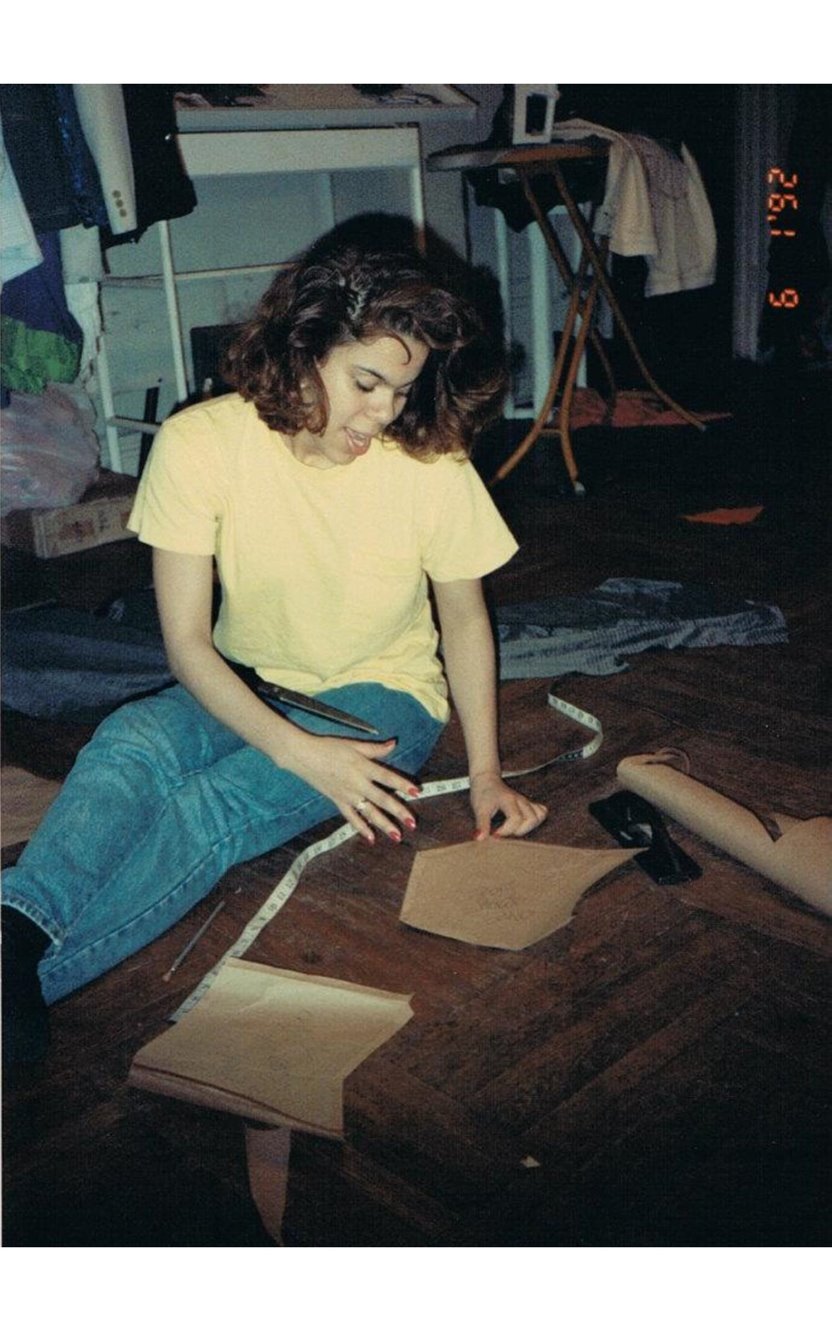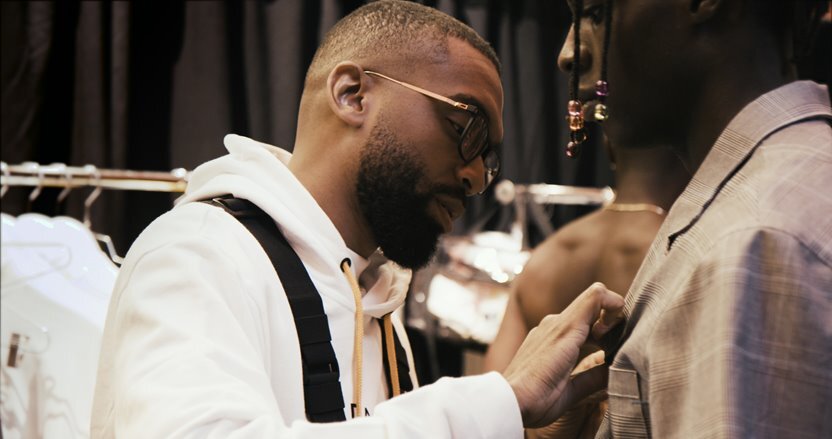What a time to be alive! Milwaukee Film Fest 2019 (CopyWrite Magazine Perspective)
/*All images from https://mkefilm.org/
Doing media coverage on film events is probably one of the most abstract task we encounter at CopyWrite. There are several ways to approach film content, including criticizing its cinematography, storyline, and the way in which it evokes emotion. Though we have strong opinions [ & we are unapologetic about them], for Milwaukee Film Festival 2019, we thought we would take a more strategic approach to our coverage. Using an Urban Creative Cultural scope to flesh out the relevance of the content and what it says about our placement in society.
“Urban Creative Culture” for these purposes includes city living, artistic expression, explicit depictions of people of color [by people of color], and the cultural dynamics that link them all together. These are the topics we are knowledgeable about, and therefore feel comfortable speaking upon #StayInYourLane.
To further cultivate or perspective, we also invited Fine Artist/ Arts Educator/ Art & Culture Consultant Vedale Hill [who also made an appearance in Milwaukee Film Fest 2018 in the Invisible Lines docuseries presented by 88Nine Radio Milwaukee] to tag along with us, for his brazen cultural insight. Milwaukee Film Festival has quite a diverse spread of content [which we love], that intertwines with many of our interests. When curating a list of films/ content to view at this year’s festival, we wanted to make sure that all aspects were looked at with the same importance regardless of our familiarity with the content or artistic formate used. After two weeks of visual indulgence, here is what we have to say:
Boss: The Black Experience in Business (Director: Stanley Nelson)
We have a lot to be thankful for. Our [Black] foremothers and forefathers paved the way for us working with the “system” so that we could have the momentum to work without it and against it. Boss: The Black Experience in Business, documents the historical and contemporary relevance of “Black innovation, entrepreneurship, and perseverance in an economy determined to exclude them” (mkefilm.org). As Black wealth and its impact on the United States economy has become a recurring theme in today's political and social climate, the origins of our “late” economic bloomage has been called into question. Where Stanley Nelson helps identify a linkage between the emancipation of slaves to the systemic need to subdue the success of the Black entrepreneur, we were in awe of its similarities to the call for economic inclusion Byron Allen recently brought up in his Breakfast Club interview.
While it is easy for us to stand in our current reality boasting how “We are not our grandparents”, and hissing at the idea of physical and blatant social control over our lives, our ancestors lived in a different world. They had to navigate differently to create the spaces in which the rest of us now thrive.
If we take Madame CJ Walker as an example, we can see how even some of our most noted Black success stories come from a place of cultural compromise. As the film discusses, Walker became the first self-made woman millionaire from helping other Black women assimilate. Though that created a wedge within the community, it also emboldened women into a thriving new industry (one we still dominate in today) promoting pride and beauty, even though it was skewed from our natural attraction, and reinforced White cultural standards.
Learning our history helps bolster our confidence.
Boss reinforces us with the power we need to make changes, lead instead of following and demand more economic freedom from a society undoubtedly helped shape. We are constantly told that we don't work hard enough for the opportunities that are presented to us. When in actuality each turn we have made with progress, we have been purposely set back through lynching, massacres, and vandalization of Black business and its leaders.
As we sit in an era with more education, more infiltration of infrastructures that were made to keep us out, this documentary is a wake-up call for not just Black America, but for our privileged counterparts. We will not only be taking a seat at the table, but we will be making our own.
As CopyWrite is a Black-owned business . . . we feel that!
The Milwaukee Music Video Show
The only thing better than local music is local music videos! In today's super mediated climate visuals are everything. Where music becomes the soundtrack to our lives, the videos become the storyboard for all of the metaphors, juxtapositions and WTF's we didn't catch.
This is our favorite part of Milwaukee Film Fest every year because we get the opportunity to see collaboration in full effect. Musicians/Singers/Producers/Lyricist collaborating with directors, illustrators, make-up artist, set designers, [animal trainers?] and the like. Many of these videos we only get to see on our phones, computers and possibly a large screen smart TV if you're lucky. But bringing them into the cinema gives a whole different type of aura. One that is simply larger than life.
The lineup of music videos where diverse [but where they diverse enough? We still are not sure]. Some content even challenged us to define what are the qualifications of a music video in general. Is it just visuals that accompany audio production? [Hey Milwaukee Film Fest Officials please send over the submission requirements. We would like to share them with a few folks].
It revealed three things:
Many local musicians are commenting on social shifts and identity. These music videos, therefore, become controversial platforms.
We don’t know who the target audience or the target producers of the content are? “Call for Entries” does not give out any of that information.
We still don’t know what qualifies as a music video!!!
We have to be critical here. We heard good music with bad visuals and sonically odd tracks with ocular delight. There were moments of budget versus skill and some “Ooooo their popular, let's put them in” fugazi. But there was also some really cool artistry that we didn't expect.
S/O to:
FUZZYSURF - "DENNY" (now we all want to be a [put a “m” here]-uppet)
WILLIE HUMBLES - "SCIFLY" (we are rocking with the afrofuturism)
ZED KENZO - "FRESH" (For the unapologetic personality)
VIOLENT FEMMES - "I'M NOTHING" (this is the most locally relevant and socially conscious music video in the line up #ClapFor’em).
As we #SupportTheLocal opportunity for true growth and true communal representation has to be prioritized. Without even mentioning it in name, we all know that one specific genre of music and thus music videos are the most influential, most consumed, and most referenced content globally. However, those music videos only made up less than 25% of the videos shown. The math doesn't add up. So it becomes another conversation we need to have. Who are the gatekeepers of The Milwaukee Music Video Program? How are you reaching out for submission? Is this really a representation of MILWAUKEE music? Ehhhhh it’s questionable.
Premature (Director: Rashaad Ernesto Green)
Who doesn't love a good coming of age story? They tend to remind us of our own naivety, youthful mistakes, and loss of inhibition. But many of them are now outdated. The world has changed drastically over the last decade. Technology, social positioning, and gender politics are at an all-time high. Which changes the narrative of what it means to enter adulthood. Premature is a polished, production of alternate means of “maturing” in today's Black America.
Premature is right on time in an era where Roe v. Wade is at the risk of being overturned, there is a higher concentration of women of color attending college and Black love is being idolized. It has more insight into this stage of transition than the media usually depicts.
Green, takes a risk in putting these intimate moments on display reminding us that every story has two sides. Its poetic narration adds another layer of artistic expression. It serves as that voice in our head that holds wisdom that we can not tap into until the damage has already been done.
Furthermore, it plays into the motif of the Black Community, and each "characters" role within it. They say "It takes a village". But that village is not without flaw. The loudmouth friend, the slick-talking ex, the disappointed hypocritical mother, the uber promiscuous girl with the 3+ kids she always needs a babysitter, they all appear as archetypal reminders. We found so much of ourselves in this film because it is our story.
As people of color how we display our story has power. We appreciate how Premature as a film places the power back in truth.
Vision Portraits (Director: Rodney Evans)
We often take for granted our senses. They are just so embedded in our day to day lives that we never really anticipate what it would be like to wake up without them. Vision Portraits takes us through the lives of several artists (film director Evans himself, a photographer, a dancer, and a writer) and discusses how vision or the deterioration of vision, affects artistry.
What is enticing about this film and the work of the subjects chosen, is the fact that had they not revealed they had compromising vision, we would have never known. It proves that you don't need vision to have sight or sight to have vision. The exercise that blacks out the screen and ask you to close your eyes while someone lists off words [example: Mother, red balloon, theater, flower, street lights, snowflakes] proves that once you have seen something, that image stays with you.
As artist and art lovers the fear of not having sight has always seemed crippling. The idea of being disabled as a creative turns into a push for independence and also a subject that then becomes projected into your art. It changes you, and it seems as though being conscious of that change is the part that is liberating.
It is niche, but that niche-ness makes it a film for everybody. It is informative, thought-provoking and dare we say it cast light into the darkness. We applaud Evans for using his own journey and vulnerability to create something that means more than what meets the eye.
The Remix: Hip Hop X Fashion (Director: Lisa Cortés, Farah X)
If we have to pick a favorite film for this year’s coverage there is only one contender. Coming from an Urban Creative Cultural perspective, The Remix: Hip Hop X Fashion checks all of our boxes. With its thorough depiction of both contemporary and historical contributions to the most influential genre/industry in the world it inspired, it informed, and it elated.
Remixing is vital to Black culture and is at the very roots of hip hop. The crossover between music and fashion is one that is usually portrayed as happenstance instead of innovatively designed. Lisa Cortés and Farah X direct us to not just the people but the matriarchs that are responsible for the iconography of hip hop that we still harp on, bite at, and praise to this day. It gave us a dosage of something that we needed but didn’t know we wanted. Who knew that the innovators of hip hop were women? Who knew that Misa Hylton and April Walker, were behind the trends that undoubtedly changed how we dress and express ourselves? Right up there with Dapper Dan [Gucci stand back], Hylton and Walker are entering our lexicon of [hip hop] fashion legends, along with Kerby Jean-Raymond. Now nothing will ever be the same.
With its candid interviews and curation of iconic/archived images, The Remix: Hip Hop X Fashion, is important to the “culture” and its current social climate. It also plays into the global phenomenon of what hip hop fashion and culture has become by telling its origin story through the perspective of those who made the history. These producers of style not only gave an alternative lens to ethnic American beauty, but it also fortifies the economic prowess that black design has created.
April Walker (of Walker Wear) & Lexi S. Brunson (CopyWrite Magazine Editor-in-Chief)
We were honored with the presence of April Walker, creator of Walker Wear [and as far as we are concerned the creator of the baggy jean suit] on the last day of the film viewing. She commented on her choice of hiding her identity as a female designer of a male fashion line, as one that she still stands behind to this day. It triggers us to note, that in reality people even in today’s age of “equality” are still skeptical or dumbfounded by the fact that women are innovators and indispensable contributors to our culture. These “Mothers of style” birthed the hip hop look and still at this point don't get the recognition they deserve.
It is clearer than ever before that behind every great man, there has always been an even greater woman. The Remix: Hip Hop X Fashion should serve as an inspiration to treat our creators better and pay homage to those who have made being “us” an image to die for.
(Seen In that order)
What a time to be alive! Urban Creative Culture is thriving, relevant, and sparking all kinds of conversations. We were inspired, a little aggravated, amazed, confused and enthralled.
That combination is vital for a good film festival experience. So all in all, we urge that if you didn't attend this year, you make sure you join us in the years to come. There is always room to grow. There are always more stories to tell. There will always be more art to consume. We need this in our city. We need this in our world.
/CopyWrite (From the notes of Lexi S. Brunson & Vedale Hill)













